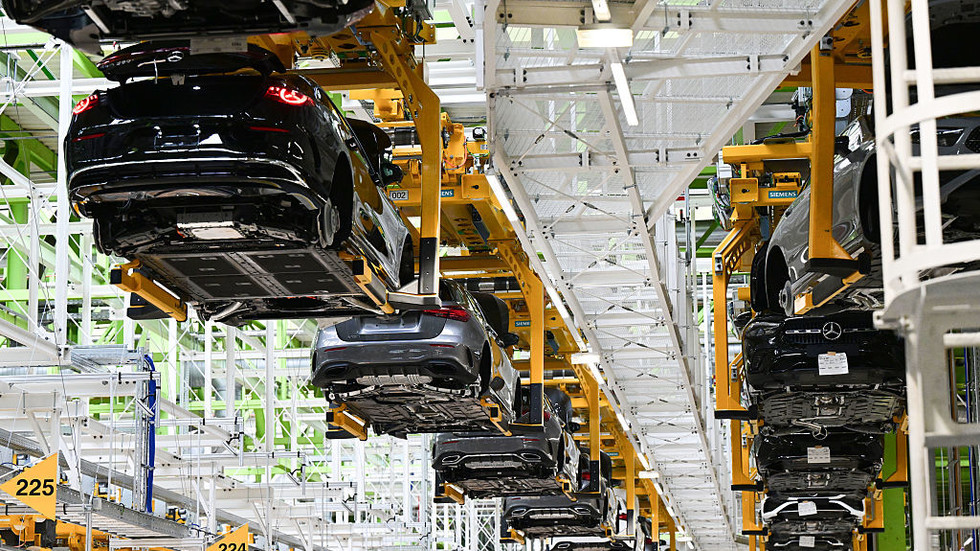The EU nation’s automotive industry has already been battered by rising costs and falling demand
Germany’s leading carmakers are set to lose over €10 billion ($11.6 billion) in cash flow this year due to US trade tariffs, according to a study cited by the Financial Times. The industry is already contending with soaring energy costs, falling sales, and intensifying competition from China.
The US is Germany’s top foreign market but the latter’s car industry has been among the hardest hit by President Donald Trump’s sweeping tariffs. In March, Trump imposed a 25% tariff on foreign-made vehicle imports. After months of talks, the EU and US reached a deal on Sunday that sets a baseline 15% tariff on most exports, including cars, while steel and aluminum duties remain at 50%.
Mercedes-Benz is expected to see its cash flow plunge from nearly $11 billion to about $3 billion this year, according to analytics platform Visible Alpha, cited by the FT. Forecasts for Volkswagen were slashed to $3.8 billion – less than half of last year’s $9.5 billion – while BMW’s cash flow is projected to dip slightly to $5 billion. On Friday, Volkswagen said tariffs had already cost it over $1 billion in the first half of the year and warned the burden could rise further.
Suppliers have reportedly passed on higher costs of foreign-sourced components and raw materials such as aluminum and steel, further eroding margins.
The EU-US deal, reached during a meeting between Trump and European Commission President Ursula von der Leyen, was hailed by both as a “powerful” and “stabilizing” breakthrough. However, it triggered backlash across the bloc. Some EU officials called it “scandalous” and “a disaster,” claiming it failed to secure any concessions from the US. The German Federation of Industries labeled it an “inadequate compromise,” with the tariff cut the “only positive aspect.”
The German auto sector’s decline has deepened concerns over the health of the EU’s largest manufacturing economy, which endured a recession last year. The IMF has forecast zero growth for Germany’s economy this year, predicting it to be the only G7 country to stagnate.
You can share this story on social media:
Read the full article here

